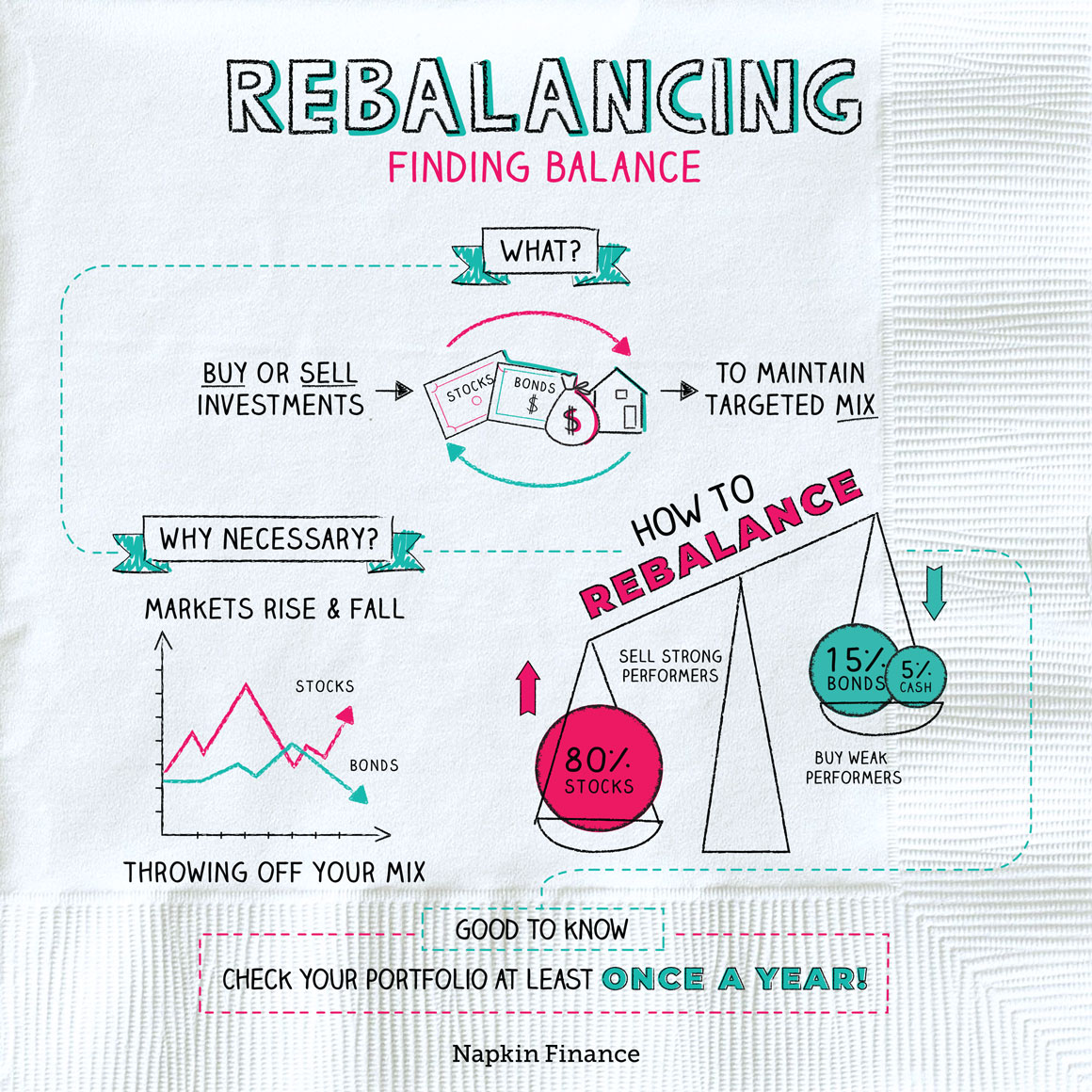Obviously the more frequently you rebalance the less likely your portfolio is to stray from your intended allocation. Four rebalancing approaches ranged from quarterly rebalancing for the most frequent to rebalancing every four years.
 When Should I Rebalance The Irrelevant Investor
When Should I Rebalance The Irrelevant Investor
Many investors rebalance when theyre doing other financial.

Best time to rebalance portfolio. Another good time to rebalance your investment portfolio is when the market makes an extreme move in either direction. Two more approaches rebalanced. Plus pushing capital gains into the following year will also postpone any tax you will owe on those gains.
Rebalancing a portfolio of mutual funds is typically needed just once per year. Too often rebalancing can force you to make a change on Monday only to reverse it on Tuesday as the markets fluctuate. Some investors and advisors rebalance on a set schedule based on the calendar--every December for example.
You can rebalance your portfolio at predetermined time intervals or when your allocations have deviated a certain amount from your ideal portfolio mix. Rebalancing can be done by either selling one. The big advantage of rebalancing at year-end is that it enables you to be systematic.
Amol Joshi founder of PlanRupee Investment Services says The essence of asset allocation lies in asset-rebalancing It. If youre just talking about retirement accounts it doesnt really matter when you rebalance. The best rebalancing strategy during the last deep bear market was to rebalance near the bottom.
Once per year is often suggested but maybe you prefer to rebalance quarterly every two years or whenever your portfolio allocation drifts by a certain percentage say 5. There are two main methods investment managers use to rebalance portfolios. With the exception of the best performing portfolio there wasnt a tremendous variability among the rebalancing schedules standard deviations of return-for-risk ratios.
Let the calendar be your guide. Rebalance your portfolio at a regular interval but not too frequently. For most young long-term investors rebalancing once a year should suffice.
Obviously well only know where the bottom is with the benefit of hindsight. Normally this would mean youd need to keep a close eye on your portfolio and constantly check if its out of balance. December is historically the best time.
Generally I am buying in taxable after RMDs come out late in the year and it tends to work for me that January and February are historically the best months to buy the mutual funds in taxable to rebalance our AA. A good rule of thumb is to rebalance when an asset allocation changes more than 5. This is because the capital markets dont tend to have large swings in price in shorter time periods.
Tax season is as good a time as any especially if you make IRA contributions leading up to the April 15th deadline. Stocks bottomed in March so its not terribly surprising that the best months to rebalance were March April and February. Many experts have looked at this question and agree that historically the first quarter of the year when the market tends to do well is the most favorable time to rebalance.
But I also use quite a few other criterion as well. The downside of rebalancing at set calendar appointments is that you risk overdoing it. Historically the first quarter is the best time to rebalance.
Now know that this is controversial because it could be interpreted as an attempt to time the market. In dollar amounts the 1000 investment on December 31 1975 grew to 62214 for the six-month rebalancing portfolio and to 72537 for the best performing by May 31 2019. For a lot of people it makes sense to use the end of the year as a time to examine their financial investments and look at any potential changes coming in the new year.
Some account management tools with online brokerage accounts mutual fund companies or 401k plan websites may also offer an automatic rebalance option. Rebalancing recalibrates your asset allocation Rebalancing is the process of periodically comparing your original asset allocation to your current portfolio and if the holdings vary more than a. In April tax time or December tax-loss harvesting time.
The first is simply to check your asset allocation over specific time intervals like every month quarter or year.
